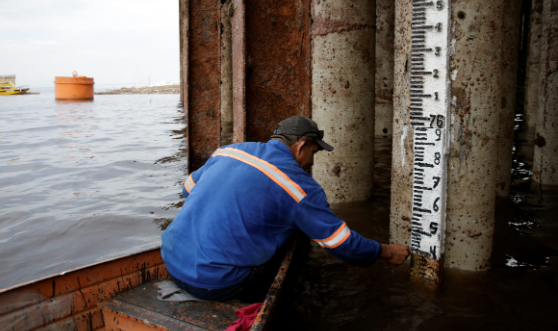
The Negro River, a critical tributary of the Amazon River system, is grappling with an unprecedented drought, marking its worst water crisis in more than 122 years. On October 4, 2024, water levels in Manaus, the largest city along the river, plummeted to a staggering 12.66 meters—dramatically lower than the usual 21 meters recorded during the same season. This alarming situation is exacerbating the hardships for local communities, reflecting the broader environmental challenges faced by the Amazon region.
Record Low Water Levels
The water level drop in the Negro River has set a historic low, breaking the previous record established just last year. This indicates an escalating crisis, with experts warning of even more severe consequences if the expected rainfall remains scarce. The current situation signals the most intense drought seen in over a century, intensifying concerns about the river’s future and the well-being of those who rely on it for their daily livelihoods.
Expert Predictions on the Crisis
Andre Martinelli, a renowned water expert, has painted a grim picture of what lies ahead. According to Martinelli, the water levels in the Negro River are projected to continue dropping throughout October, exacerbating an already dire situation. “The drought is only going to worsen,” he remarked, emphasizing that the expected low rainfall in the region’s upstream areas could deepen the crisis.
This ongoing drought has already created significant challenges for the communities living along the riverbanks. Essential activities like transporting goods, accessing clean water, and fishing have become extremely difficult, with the river’s diminished flow complicating daily life for thousands of residents.
A Broader Crisis in the Amazon Basin
The drought impacting the Negro River is not an isolated event but part of a broader environmental and humanitarian crisis unfolding across the Amazon Basin. Climate change is playing a critical role in the disruption of the region’s natural water systems, leaving the Amazon—one of the most vital ecosystems on the planet—especially vulnerable to extreme weather patterns. The drought highlights how rapidly changing climate conditions can threaten not only the ecological balance but also the livelihoods of Indigenous communities and local populations who depend on these water sources.
The Importance of the Negro River
Stretching over 2,250 kilometers, the Negro River is the largest blackwater river in the world. Its distinctive dark-colored waters, tinted by organic matter from the surrounding rainforest, flow through one of the most biodiverse regions on Earth. The river serves as a lifeline for numerous Indigenous groups, including the Yanomami and Baniwa communities, who have lived along its banks for generations, relying on it for food, transport, and cultural practices.
The Negro River also boasts a unique ecosystem, home to rare species like the pink river dolphin. One of its most famous sights is the “Meeting of Waters,” where the black waters of the Negro meet the lighter waters of the Amazon River. The two rivers run side by side for miles without mixing—a natural phenomenon that attracts global attention.
The Need for Urgent Action
As the drought deepens, the need for immediate action becomes even more pressing. The river’s ecological and social significance underscores the urgency of addressing the environmental degradation taking place across the Amazon Basin. Prolonged droughts, combined with deforestation and climate change, are placing immense stress on this region, which serves as the “lungs of the Earth.”
The Negro River crisis is a stark reminder that climate change is not a distant threat but a present reality, one that demands coordinated global efforts to safeguard vulnerable ecosystems and the communities that depend on them. Without urgent intervention, both the environmental and humanitarian toll of this drought may become irreversible.

